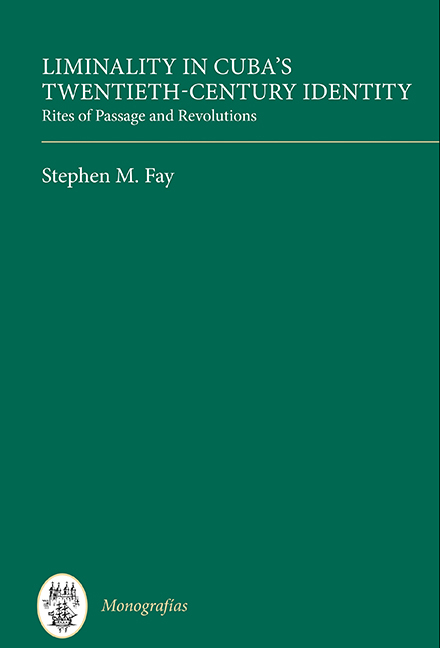Summary
This book has examined seven important moments in Cuba's twentieth century as points in a rite of national passage. It has shown that at each point historical circumstance, cultural and generational coincidence, a sense of ethical discomfort and the perceived need to remodel civic structures all led to an impulse to re-orient collective sensibility and begin a new chapter in Cuba's national narrative; in other words, to undertake the socio-structural ‘separation’ that anthropologists identify as the first phase in the rite of passage. After this initial separation came the interstitial, introspective and all-important limen, and the ideological adversaries we have followed throughout pulled on their gloves and prepared to fight, either brazenly confident that victory would ultimately be theirs, or resigned to the fact that the luchita could last some time. For the former, whom we have called ‘the reaggregationists’, a sense of forward momentum, the coalescence of a cohesive archetype and the tearing out of unsatisfactory pages from the collective narrative were all essential to move beyond such moments of existential flux and on to a near happyever- after future. The latter, whom we have called ‘the liminalists’, rather advocated a more pragmatic acceptance of flux, saw history turning in everrepeating circles and the national narrative as an honest document of Cuba's oftentimes mala vida. Two fundamentally different ontologies of identity were therefore revealed and scrutinised here under the analytical light of liminality. The reaggregationists followed Arnold van Gennep through a temporal and cathartic limen in which all antecedent sins were atoned for and absolved, all maladies made better, all devils banished from the collective alma for ever as Cuba moved towards a post-liminal promised land in which the near perfect pueblo rallied around their Revolutionary shepherd. On the contrary, and contrarily, those prepared to dwell always and forever en la luchita saw the introspection and ambivalence of liminal turning points not as a phase at all, but as a congenital and irrevocable condition (as it is for Victor Turner).
- Type
- Chapter
- Information
- Liminality in Cuba's Twentieth-Century IdentityRites of Passage and Revolutions, pp. 215 - 224Publisher: Boydell & BrewerPrint publication year: 2019



